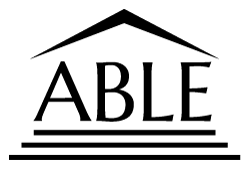 Minnesota is among 40 states whose lawmakers approved tax-free savings accounts under the federal Achieving a Better Life Experience (ABLE) Act of 2014. The legislation promotes employment and quality of life for people with disabilities by ensuring that earnings and other funds saved in ABLE accounts don’t count against eligibility for public programs, including Medical Assistance and Social Security Supplemental Income.
Minnesota is among 40 states whose lawmakers approved tax-free savings accounts under the federal Achieving a Better Life Experience (ABLE) Act of 2014. The legislation promotes employment and quality of life for people with disabilities by ensuring that earnings and other funds saved in ABLE accounts don’t count against eligibility for public programs, including Medical Assistance and Social Security Supplemental Income.“The ABLE Act allows people with disabilities and their families to save funds for education, assistive technology, housing, transportation and other goods and services not included in public benefits,” said Human Services Commissioner Emily Piper. “Many people living with disabilities want to work and build earnings and families also want to contribute funds that can be used to maintain health, independence and quality of life.”
Currently people with disabilities can lose eligibility for public benefits once they reach $2,000 in savings. Contributions to ABLE accounts of up to $14,000 per year are allowed under current rules. The account could grow to as much as $100,000 before some public benefits would be suspended.
Minnesota joins Alaska, Illinois, Iowa, Kansas, Missouri, Nevada and Pennsylvania in the consortium, which will manage an investment portfolio similar to tax-advantaged accounts for college savings. Unlike college savings plans that draw hundreds of thousands of participants, ABLE account participation is too limited for each state to have a viable program. By pooling resources, states can attract quality investment products and lower costs.
The consortium’s next step is to seek public bids for investment services, record keeping and marketing services. ABLE accounts are expected to be available in Minnesota this fall.
For more information on ABLE accounts, visit the ABLE National Resource Center, the NDSS for an overview of the ABLE act or the IRS website for Federal guidance.
